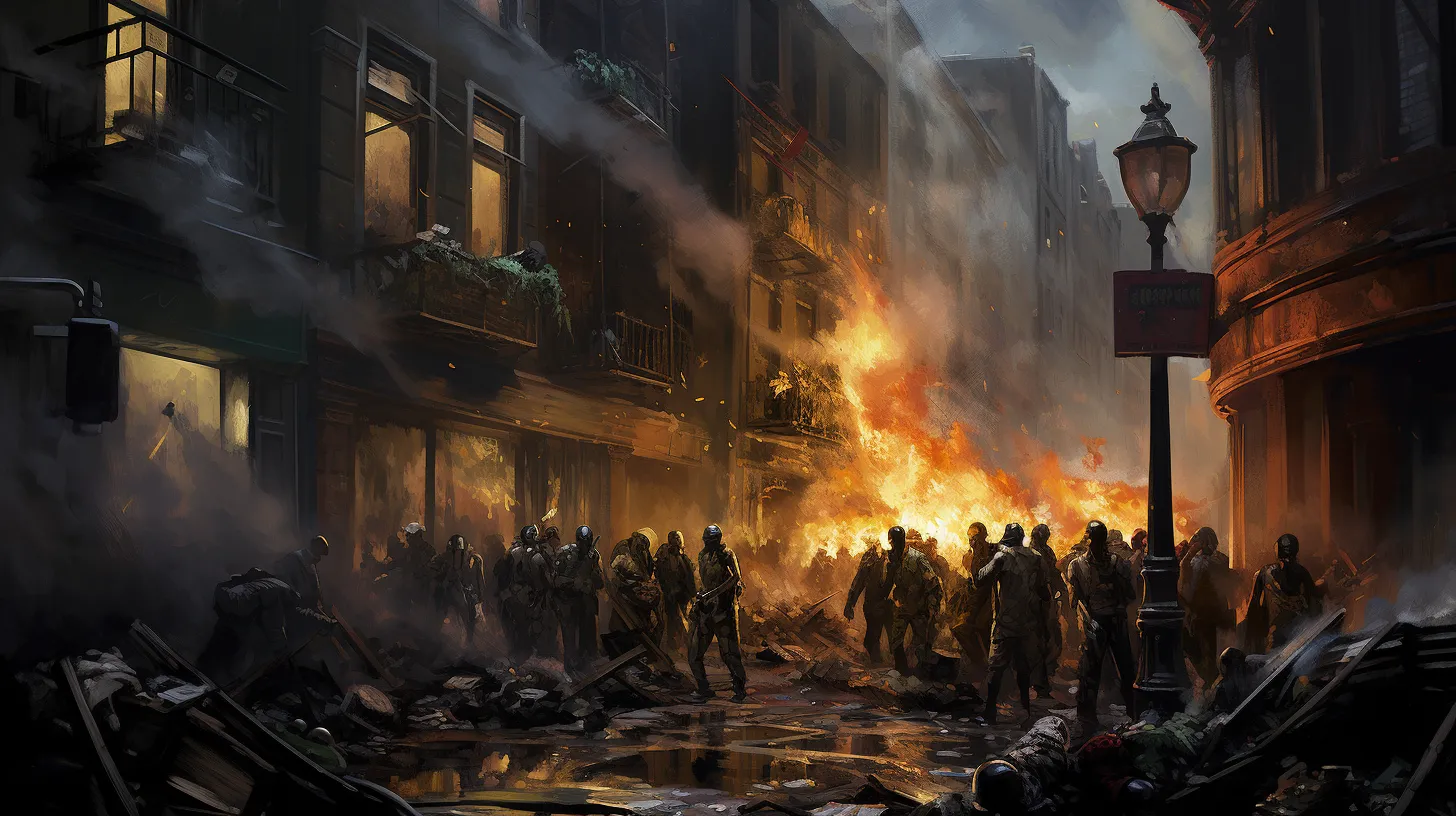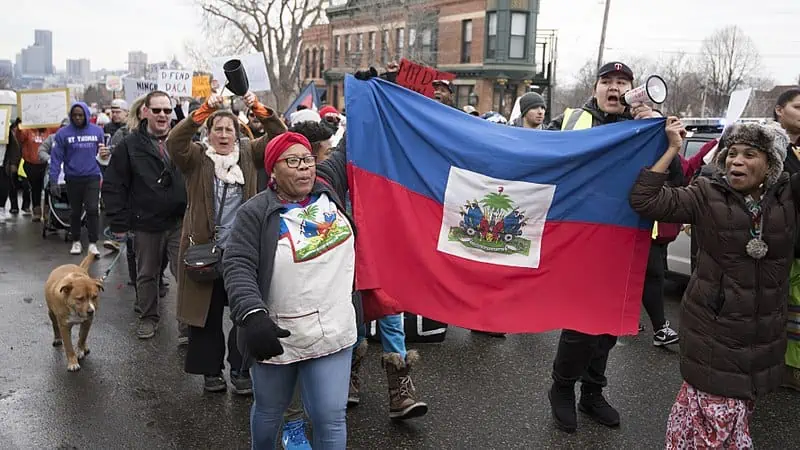Life in Haiti today is characterized by ongoing political turmoil, increasing violence, and a deepening humanitarian crisis. The nation is grappling with a power struggle following the ruling on President Moïse’s term, leading to widespread protests and demands for his resignation.
Gang violence and insecurity have reached alarming levels, profoundly affecting the lives of millions. The population faces significant challenges including limited access to clean water, food insecurity, and restricted educational opportunities.
Despite calls from the international community for aid, doubts linger about the effectiveness of such assistance due to past failures. Urgent and decisive action is vital to bring relief and stability to the people of Haiti.
Political Crisis and Instability

The political crisis and instability in Haiti have created widespread uncertainty and discontent among the population. President Jovenel Moïse’s ruling by decree since January 2020, coupled with the delayed legislative elections, has led to a power vacuum and heightened instability.
The recent assassination of President Moïse has further deepened the chaos, prompting concerns about the country’s leadership and governance. Gang violence has surged, and there are growing calls for international intervention to restore order. The Haitian National Police’s ability to maintain law and order has been severely tested, contributing to the prevailing sense of unease.
Moreover, the economic crisis has exacerbated the situation, with foreign interventions and the need for free and fair elections becoming increasingly urgent. The future of Haiti remains uncertain amidst the ongoing political turmoil and instability.
Socio-Economic Challenges

Amidst the ongoing political turmoil and instability, Haiti faces significant socio-economic challenges that are exacerbating the already precarious living conditions for its population.
Gang violence and political instability have severely impacted the economy, leading to widespread unemployment and limited access to essential services.
The recent assassination of President Moïse has further deepened the crisis, prompting increased security concerns and hindering economic recovery efforts. The United States, United Nations Security Council, and international organizations have attempted to provide aid, but the situation remains dire.
Additionally, dramatic floods and soil erosion have severely affected access to clean water, sanitation, and food security, exacerbating the country’s socio-economic struggles.
These challenges have created a cycle of poverty, making it difficult for Haitians to access education, healthcare, and economic opportunities, further perpetuating the country’s socio-economic crisis.
Resilience and Perseverance

Life in Haiti today demonstrates the resilience and perseverance of its people despite facing numerous challenges.
In the aftermath of the assassination of President Jovenel, Haiti has been grappling with political instability, gang violence, and a humanitarian crisis. Prime Minister Ariel Henry’s efforts to form a transitional government and seek international support reflect the country’s determination to overcome these adversities.
Despite the overwhelming conditions, Haitian civil society continues to advocate for change, demonstrating remarkable resilience. The Biden administration’s commitment to providing aid and support also acknowledges the unwavering perseverance of the Haitian people.
Additionally, the Haitian police and judicial officials’ steadfast pursuit of justice in the face of threats and intimidation showcases their resilience.
This collective resilience and perseverance exemplify the strength and determination of the Haitian people amidst adversity.
Human Rights and Equality

Haiti’s current situation illustrates significant challenges in upholding human rights and equality. Human rights violations, threats against judges, and intimidation of human rights advocates and journalists are rampant.
Overcrowded prisons with a majority of detainees awaiting trial raise concerns about the criminal justice system’s ability to ensure rights and equality.
Gender-based violence remains pervasive despite laws against it, highlighting the struggle to protect women’s and girls’ rights. LGBT individuals face discrimination with no comprehensive legal framework to protect them from it.
The country’s leadership, including Prime Minister Henry and President Moïses, faces pressure to address these issues amid political instability and the presence of gang leaders in the Southern Peninsula.
As Haiti prepares for elections, the international community, including the United Nations, may need to consider deploying a humanitarian or peacekeeping force to help address these challenges.
Efforts for Rebuilding and Improvement

Efforts to rebuild and improve Haiti’s infrastructure and government systems are underway following the recent political crisis and humanitarian challenges. The Haitian Prime Minister has emphasized the importance of holding general elections in 2022 to establish a new constitution and bring stability to the country.
The Covid-19 pandemic has further strained Haiti’s resources, exacerbating the humanitarian situation for millions of people. International actors, including the UN and the US, have pledged substantial humanitarian assistance to address the urgent needs of the Haitian population.
Rebuilding efforts are also focused on addressing severe overcrowding in Haitian prisons and investigating past abuses to ensure accountability. These initiatives are crucial to improving the rights to health, water, food, and education for all Haitians.
As the situation in Haiti remains a humanitarian crisis, urgent international support is vital to facilitate lasting improvements for the country in the Western Hemisphere.



